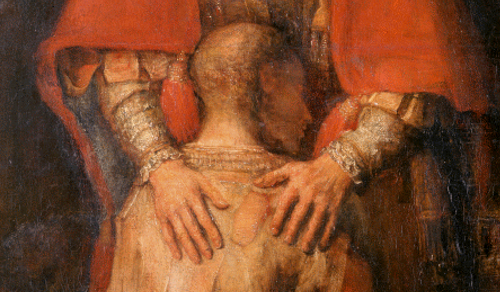Reflections by Gianni Geraci, co-spokesman of ‘The Ways of Love’. Translated from Italian by Claudio Abate/Andrew Lyon.
On 3 October 2014 an international theological conference will take place in Rome as a result of the efforts of a committee which includes representatives of the varied Christian world engaged in building a more inclusive Church.
The Conference will focus on ‘faith and homosexuality’ to remind the bishops who will attend the Extraordinary General Assembly of the Bishops’ Synod between 5 and 19 October that the announcement of the Gospel to those who feel left out because of their homosexuality and transexuality is one of the Church’s challenges in the coming years. Walking a new path is what it takes. This is the reason why the organizers chose ‘The Ways of Love’ as a title for their Conference.
Pointing out new ways where the ecclesial communities and homosexuals can meet and discover a new meaning for the announcement of the Gospel is what is needed. The idea is to follow in Abram’s footsteps, who wasn’t defeated by fear, who didn’t stand still in Harran where his father took him, who didn’t want to know in advance where the Lord was taking him, who didn’t ask for reassurance but only God’s promise to keep him under His blessing. (Gen. 12:1, 2).
Homosexuals’ experience is deeply connected to Abram’s vocation: just like him, they need to face a horizon they don’t know, go down a road of which the final destination is unknown and the challenge of turning their homosexuality into sanctity without role models or points of reference. Just as happened to Abram, they will hear their old friends ask: ‘Why are you doing this? Live your life and give up unrealistic ambitions. Don’t walk roads you are not familiar with.
But just as Abram did, they will hear God’s promise echo in their hearts: it is absurd to human reasoning (‘I will make you into a great Nation’, the Lord said to him when he was seventy-five and with no children because of his wife’s barreness) and it is demanding (‘Go from your country, your people and your father’s household’). This promise, apart from His blessing (‘I will bless you’), has no warranty (‘Go to the land I will show you’). There is only an undefined destination that the Lord will point out on the way. Yet it is God’s promise.
Churches are also called to understand, together with homosexuals, the ways that bring their lives and the Gospel together. They also need to free themselves from old prejudices (‘Homosexuality is a vice! Homosexuality is a disease!’) and popular sayings (‘Homosexuals are not capable of building steady and faithful relationships’). They need to put aside fears and suspicions to ask themselves, together with homosexuals and transexuals: ‘How is God calling upon them to live their diversity as deeply as possible in His love?’
It is a new challenge for several reasons and the Church must embrace it to give hope to all kinds of people, including homosexuals and transexuals who have long been waiting for it.

Un pensiero su “A challenge for Love. It is time to discuss the Church’s pastoral care with LGBT people”
I commenti sono chiusi.